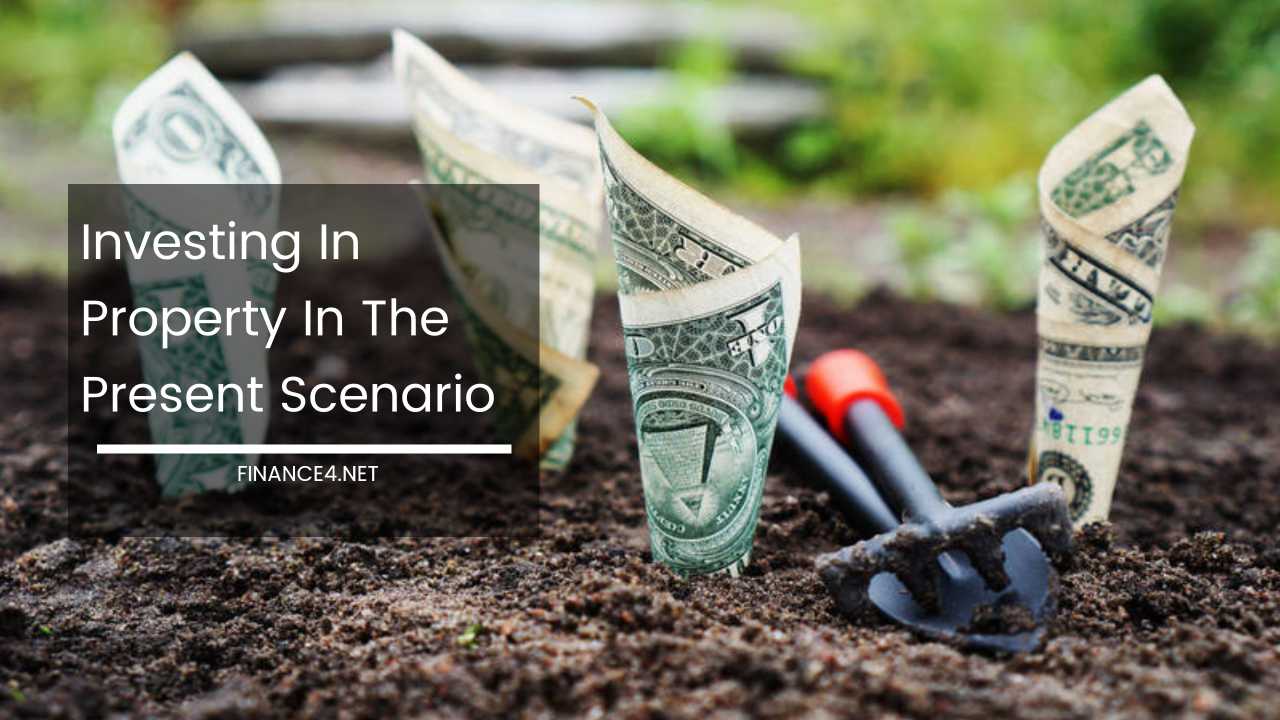Investing in Property in the Present Scenario

The Resilience and Opportunities of Real Estate Investment in the Current Economic Landscape
In the ever-evolving realm of financial investment, real estate remains a cornerstone asset class, offering stability, income generation, and capital appreciation potential even amidst prevailing economic uncertainties.
Despite lingering doubts and skepticism surrounding its viability, experts unanimously advocate for real estate as a strategic component of investment portfolios.
This discourse delves into the myriad advantages and opportunities inherent in real estate investment, elucidating its resilience and potential for wealth creation in the current economic scenario.
Understanding Real Estate Investment:
Real estate investment encompasses the acquisition of various property types, including land parcels, residential complexes, commercial buildings, and rental properties.
Unlike volatile investment vehicles susceptible to market fluctuations, real estate assets offer intrinsic stability and enduring value, making them a favored choice among investors seeking long-term wealth preservation and growth.
Whether purchased for rental income, capital appreciation, or diversification purposes, real estate presents multifaceted opportunities for investors to optimize returns and mitigate risks.
Historical Performance and Comparative Analysis:
A comprehensive analysis of historical data underscores the resilience and profitability of real estate investment over time.
According to reports from the National Council of Real Estate Investment Fiduciaries (NCREIF), commercial real estate delivered an average return of 8.4% in the private market between 2000 and 2010.
This outperformance, relative to equities and bonds, can be attributed to the lower volatility and steady income streams associated with real estate investments.
Furthermore, real estate’s intrinsic value proposition transcends market cycles, providing investors with a reliable hedge against economic downturns and inflationary pressures.
The Advantages of Real Estate Investment:
Real estate investment offers a myriad of advantages that set it apart as a compelling investment avenue in the current economic landscape.
Firstly, demographic trends, such as population growth and urbanization, ensure a perpetual demand for housing and commercial space, thereby driving property prices upward over time.
Additionally, real estate investments afford investors the opportunity to diversify their portfolios, thereby mitigating overall risk exposure and enhancing long-term returns.
Moreover, real estate assets serve as tangible assets, providing intrinsic value and serving as a hedge against inflationary pressures.
Timing and Market Dynamics:
Timing plays a pivotal role in real estate investment, with market cycles and economic indicators influencing investment decisions.
While periods of economic recession may witness heightened volatility within the real estate sector, post-recession recoveries often present lucrative opportunities for astute investors.
The current economic landscape, characterized by subdued property prices and favorable inflationary dynamics, presents an auspicious environment for real estate investment.
With market fundamentals indicating a resurgence in demand and construction activity, investors stand to benefit from potential capital appreciation and rental income streams.
Analyzing the Present Real Estate Scenario:
A closer examination of the current real estate market reveals compelling opportunities for investors seeking to capitalize on prevailing market dynamics.
The year 2019 witnessed a notable reduction—up to 70%—in property selling prices, creating an advantageous environment for prospective buyers.
Moreover, inflationary pressures have contributed to higher rental and lease revenues, thereby bolstering income generation potential for real estate investors.
Furthermore, advancements in technology and changing consumer preferences have reshaped the real estate landscape, with emerging trends such as co-working spaces and sustainable developments gaining traction.
Navigating Risks and Maximizing Returns:
While real estate investment offers promising opportunities, prudent risk management strategies are essential to mitigate potential downsides.
Market volatility, regulatory changes, and unforeseen macroeconomic events can impact property valuations and investment returns. Therefore, investors must conduct thorough due diligence, diversify their portfolios, and maintain a long-term perspective to navigate market uncertainties successfully.
Additionally, leveraging financial instruments such as real estate investment trusts (REITs) and property syndications can provide access to diversified real estate portfolios while mitigating individual property risks.
Innovations and Emerging Trends:
The real estate industry is undergoing a period of rapid innovation and transformation, driven by technological advancements and changing consumer preferences.
Emerging trends such as proptech (property technology) and smart buildings are revolutionizing the way properties are developed, managed, and monetized.
Proptech innovations encompass a wide range of solutions, including virtual reality property tours, blockchain-based property transactions, and predictive analytics for property valuation.
These innovations not only enhance operational efficiency but also improve tenant experiences and asset performance, thereby creating value for real estate investors.
Opportunities in Sustainable and Impact Investing:
As environmental, social, and governance (ESG) considerations gain prominence in investment decision-making, sustainable and impact investing strategies are becoming increasingly prevalent in the real estate sector.
Sustainable developments, such as green buildings and eco-friendly infrastructure, not only reduce environmental footprints but also offer long-term cost savings and competitive advantages.
Moreover, impact investing initiatives, such as affordable housing projects and community redevelopment initiatives, generate positive social outcomes while delivering attractive financial returns for investors.
By aligning investment objectives with ESG principles, real estate investors can create value while driving positive change in society.
Final Remarks:
In conclusion, real estate investment remains a resilient and lucrative opportunity in the current economic landscape, offering stability, income generation, and capital appreciation potential for investors.
Despite prevailing uncertainties and market fluctuations, real estate assets continue to deliver consistent returns and serve as a cornerstone of diversified investment portfolios.
By leveraging market insights, adopting prudent risk management strategies, and embracing innovative trends, investors can capitalize on the inherent opportunities within the real estate sector while contributing to sustainable and inclusive growth.
As the real estate landscape evolves and adapts to changing dynamics, proactive investors stand poised to reap the rewards of their strategic investment endeavors.



